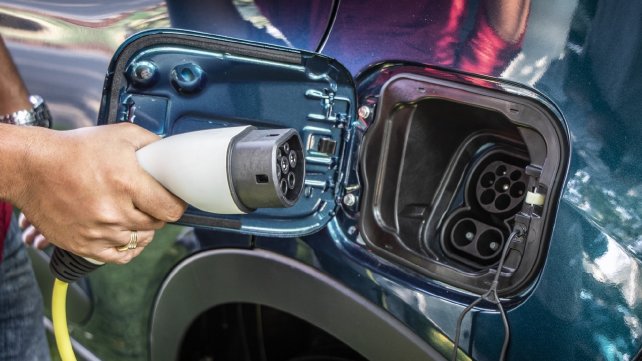India reiterated a firm commitment to achieve a net-zero emissions target by 2070 at COP26, the UN Climate Change Conference which concluded at Glasgow recently. With a view to building climate resilience and comply with global climate change initiatives, India has also resolved to boost installed capacity of non-fossil energy to 500GW by 2030. The adoption and mass implementation of electric mobility will have a key role to play in India meeting its lofty climate action targets within specified deadlines. Transitioning from internal combustion engine (ICE)-driven vehicles to energy-efficient electric vehicles (EVs) will be pivotal for India to improve its fuel economy and reduce emissions of harmful greenhouse gases.
With the implementation of schemes such as Faster Adoption and Manufacturing of Hybrid and Electric Vehicles (FAME) I and FAME II, the transportation sector in India has undergone a paradigm shift. Supportive government policies like subsidies and tax rebates and rising consumer awareness about clean transportation technologies and its environmental benefits have made electric vehicles (EVs) a dominant part of the new normal. EVs are powered by lithium-ion batteries comprising chemicals like cobalt, graphite and nickel. Once the batteries powering EVs reach the end of their life cycle, recycling them is an arduous task. The recycling process is also a complex exercise as one has to minimize the waste generated by battery an end of its life cycle and maximize the recycling of components utilized in its manufacture.
There is also a greater possibility of India becoming a dumpsite for lithium-ion battery waste in the absence of consistent rules and clear policy guidelines directing the safe disposal of EV batteries. If not disposed in the properly prescribed manner, harmful components leaking from the batteries can contaminate the soil and groundwater bodies. Harmful gases released from the batteries can pollute the air leading to serious health consequences for local populations. Lack of clarity in regulations and concerns regarding poor return on investments can prove to be a hindrance in setting up a battery recycling unit infrastructure, a highly capital-intensive exercise.
This adversity can be transformed into a potential opportunity with the right policy vision and commitment given that battery manufacturing and recycling in India are still at a nascent stage. To start with, the government and stakeholders across the EV spectrum will need to emphasize on setting up battery recycling centres (BRCs) for facilitating large-scale EV battery recycling on a countrywide basis. These BRCs will serve as collection sites where discarded batteries will be sorted, disassembled and recycled by following the necessary safety precautions and ensuring that environmental laws are not flouted. A nodal agency must be set up on a Pan-India level to oversee the seamless coordination of activities that enable the final recycling process at the units.
Consumers and companies wanting to dispose their batteries for recycling at BRCs should be legally mandated to register themselves with the agency. Entities registering with the agency should be made to pay registration fee to ensure that cost is not a hampering factor in the seamless undertaking of recycling activities. Regular audit and monitoring of operational processes and security practices at the BRCs should be undertaken to ensure compliance with safety and environment parameters.
India has adopted the Extended Producer Responsibility (EPR) initiative and collection of e-waste under its e-waste legal regime. With manufacturers of batteries legally obliged to ensure safe disposal of their batteries, they become wilful participants in the implementation of a well-planned and efficient battery waste management system. The government will need to incentivize private sector players in undertaking research and development in battery manufacturing and recycling. Setting up a robust lithium-ion battery infrastructure and developing environment-friendly recycling technologies will help India become a global recycling hub for lithium-ion batteries.
Source: financialexpress.com








